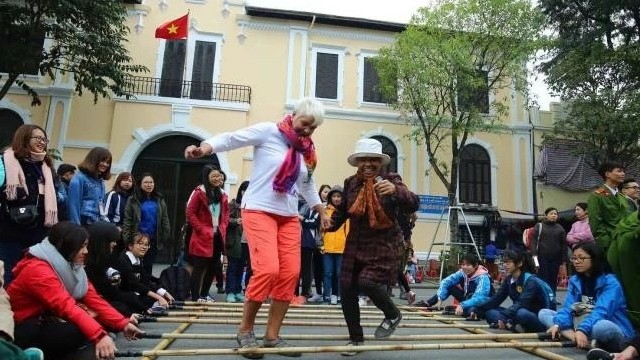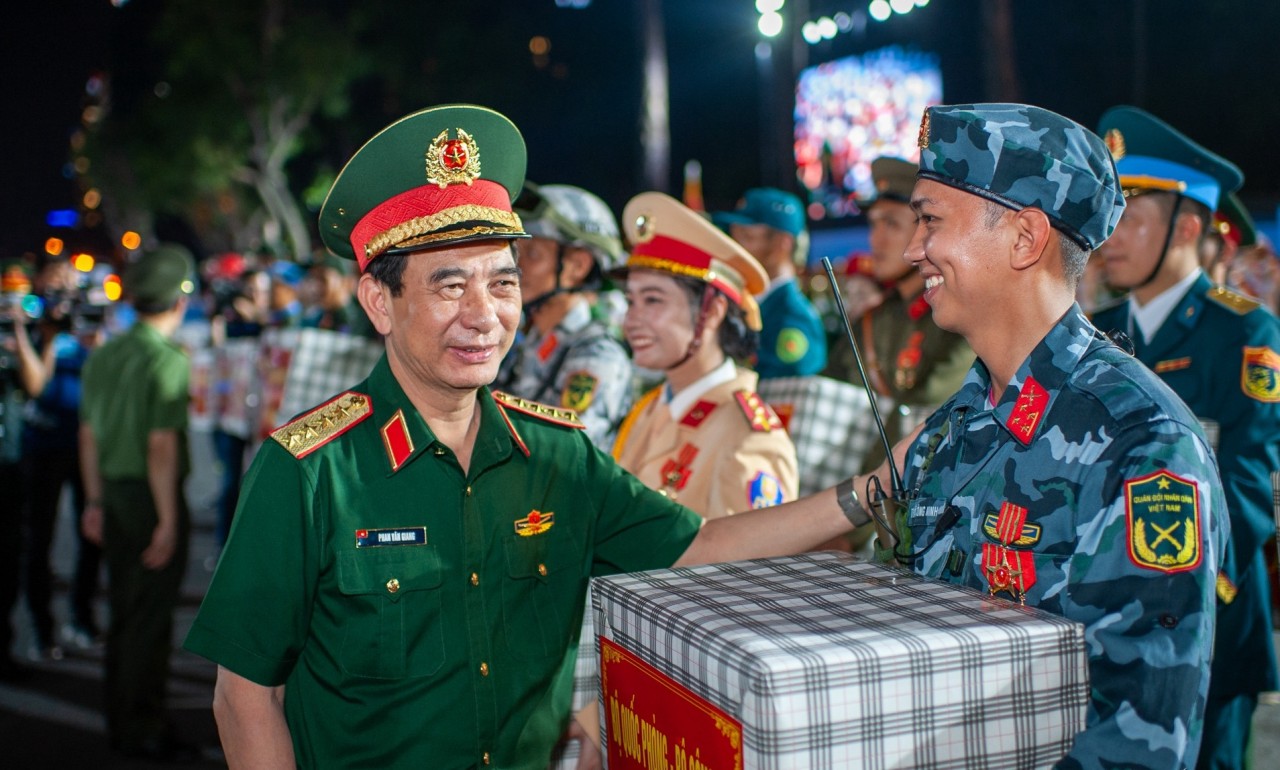Vietnam News Today (Oct. 16): Vietnam And Russian Promote Comprehensive Strategic Partnership
| Vietnam News Today (Oct. 16) notable headlines Vietnam Summit in Japan 2023 kicks off Vietnam and Russian promote comprehensive strategic partnership New e-visa policy facilitates group, MICE tours Vietnamese cuisine to be developed into national brand Halal tourism – “gold mine” for Vietnam to tap into Canadian firms look into opportunities in Vietnam Chairman of Russian State Duma arrives in Hanoi, begins official visit Festival connects Vietnamese student community in Hong Kong Vietnam promotes products in Czech Republic |
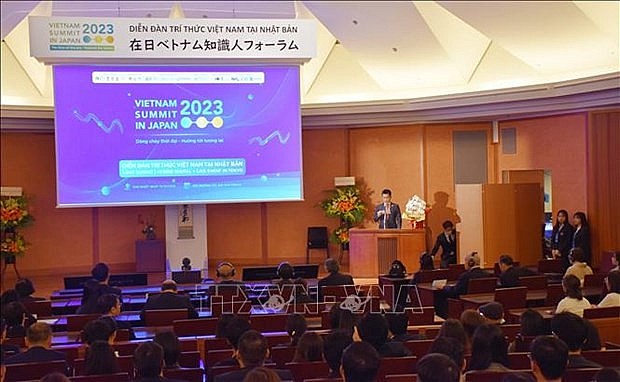 |
| The Vietnam Summit in Japan 2023 opens at the University of Tokyo on October 15. (Photo: VNA) |
Vietnam Summit in Japan 2023 kicks off
The Vietnam Summit in Japan 2023 opened at the University of Tokyo on October 15 as part of activities to mark the 50th founding anniversary of the diplomatic ties between Vietnam and Japan.
The event is a series of seminars held every two years by the Vietnamese Academic Network in Japan (VANJ), the Vietnamese Professionals in Japan (VPJ), and the Vietnamese Youth and Students’ Association (VYSA) in Japan.
In his opening remarks, Vietnamese Ambassador to Japan Pham Quang Hieu highlighted the rapid development of the Vietnamese community in Japan in recent years, which is the second largest foreign community in Japan with nearly 500,000 people.
In this community, many have obtained important positions in teaching, research, and management at prestigious universities and businesses in Japan, the ambassador said, stressing that the community has made great contributions to the development of the Vietnamese community in Japan and the host country’s socio-economic development. They also serve as important bridges promoting friendship and cooperation between the two countries, cited VNA.
The firm foundation of scientific and technological cooperation over the past years, along with the development of the Vietnamese intellectual community in Japan, will help create a new pillar - science, technology, and innovation cooperation, in the relations between the two countries, Hieu added.
According to Deputy Minister of Science and Technology Bui, The Duy, Vietnamese scientific intellectuals abroad are an indispensable force in Vietnam's science and technology sector.
Vietnamese intellectuals in Japan have engaged in many practical activities benefitting their homeland and contributed to establishing and promoting cooperation between Vietnam and Japan, especially in the fields of technology and innovation, he said.
In a plenary discussion on the 50-year relations between Vietnam and Japan, the Rector of Vietnam-Japan University, Prof. Furuta Motoo said the key for bilateral relations in the future will be whether they can build a really equal partnership. According to him, with its rapid development at present, Vietnam has sufficient foundations and conditions to have a bilateral "equal partnership" with Japan.
Participants reviewed the development of Vietnam-Japan relations over the past five decades and discussed opportunities and challenges posed for the bilateral relationship in the future.
In the framework of the event, many activities have been organized, including an exhibition on science - technology, and trade and nine debates gathering 62 speakers, which focus on directions for Vietnamese people in Japan, challenges and opportunities for Vietnam in microchip technology, and green energy and sustainable development in Vietnam.
Vietnam and Russia promote comprehensive strategic partnership
Chairman of the State Duma of Russia Vyacheslav Victorovich Volodin is scheduled to pay an official visit to Vietnam on October 15-16 to help further promote the comprehensive strategic partnership between the two countries, and cooperation between the two legislative bodies.
This is the second time Volodin has visited Vietnam, following the Russia visit in 2019 by the then Vietnamese National Assembly Chairwoman Nguyen Thi Kim Ngan.
The visit demonstrates the importance the leadership of the Russian Federation attaches to Vietnam. It is an important highlight in the Vietnam – Russia comprehensive strategic partnership, as the two countries are implementing the Joint Statement on the vision of their comprehensive strategic partnership until 2030.
During the Oct. 15-16 visit, Russian State Duma Chairman Vyacheslav Victorovich Volodin and Vietnamese National Assembly Chairman Vuong Dinh Hue will co-chair the second meeting of the inter-parliamentary cooperation committee of the two legislative bodies, which was postponed from 2020 due to the COVID-19 pandemic.
The two sides are scheduled to review the implementation of agreements between the two countries and examine issues to be adjusted and supplemented in order to make bilateral cooperation more fruitful moving forward. They will also discuss the cooperation relationship between the two legislatures and exchange views on regional and international issues of mutual concern, VOV reported.
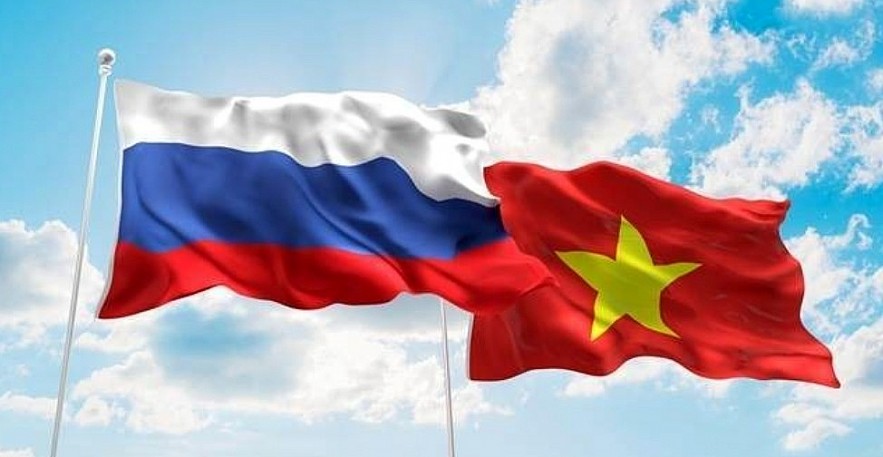 |
| Photo: VOV |
Vietnam and the former Soviet Union, now the Russian Federation, established diplomatic ties on January 30, 1950. The two countries lifted their bilateral ties to the strategic partnership in 2001 and the comprehensive strategic partnership in 2012. Nine years later, they issued a joint statement on the vision of the comprehensive strategic partnership until 2030.
Both Vietnam and Russia have maintained high political trust through regular high-level delegation exchanges, creating a strong driving force for the development of their comprehensive strategic partnership.
The two countries have also maintained many coordination and dialogue mechanisms, such as the annual defense-security strategic dialogue, regular political consultations, and the intergovernmental committee on economic and scientific-technical cooperation.
Bilateral economic and trade cooperation has been enhanced dynamically in recent times but is not commensurate with the potential of the two countries. Two-way trade turnover between the two countries reached US$3.55 billion, a fall of 35.4% compared to 2021. Notably, Vietnamese exports to Russia fell 51.4% to just US$1.55 billion.
Vietnam’s main export products to Russia include telephones, electronics, textiles, footwear, and agricultural and aquatic products, while its major imports are coal, wheat, iron and steel, fertilizer, cars, machinery, and equipment of all kinds.
Notably, Vietnam and the Eurasian Economic Union (EAEU), of which Russia is a member, officially signed a free trade agreement on May 29, 2015, which was effective from October 5, 2016.
As of September 20 2023, Russia ranked 27th among 144 countries and territories investing in Vietnam, with 184 valid projects valued at US$971.78 million. Russian investment focuses mainly on mining, oil and gas, processing, and manufacturing industries.
Cooperation in other fields such as culture, tourism, technology and people-to-people exchanges has been strengthened. Cultural Days have been held annually and alternatively in Vietnam and Russia, contributing to strengthening understanding and friendship between the two countries’ people.
New e-visa policy facilitates group, MICE tours
Vietnam’s new e-visa policy, which took effect on August 15, has facilitated group and MICE (meetings, incentives, conferences, and events) tours, insiders have said.
Under the policy, Vietnam has extended the validity of tourist e-visas to 90 from 30 days, with multiple entries, and tripled the duration of visa-free stays for visitors from certain countries to 45 days.
Ha Linh, who helps customers with tour booking in Ho Chi Minh City, said the policy has facilitated the organization of group tours by travel firms, as well as tour booking and information access by clients.
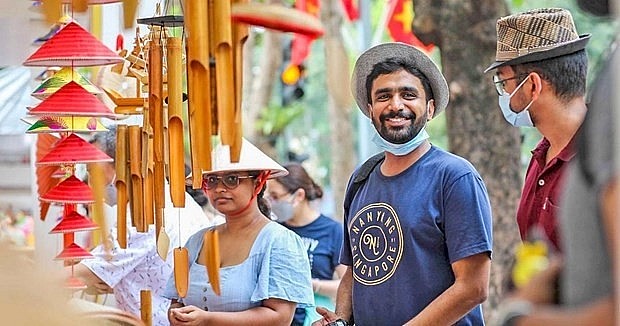 |
| Photo: VOV |
Sharing Linh’s view, Thanh Dat, a tour guide in the same city, said since the new policy came into force, the number of group tours to Vietnam has increased significantly. He said the new visa policy helps the Vietnamese tourism sector to catch up with their peers in the region and the world, opening up more cooperation opportunities for them.
Chung Thuy Chau, sales director of Viet Media Travel Corporation, expressed her belief that the policy will help to attract more holidaymakers, especially in the remaining months of this year. She added that it also creates favorable conditions for travel agencies to cooperate with partners in both outbound and inbound tours.
Notably, the Japanese Embassy in Hanoi and Consulate General in HCM City have recently announced single-entry e-visas for groups of Vietnamese tourists for short-term stays of up to 15 days from November, cited VNA.
The e-visa will not be available for individual applicants. It is done through travel companies that are approved to organize package tours, the embassy said on its website.
Tour operator Saigontourist also reported a 10% year-on-year increase in MICE services at home in the third quarter of this year. In HCM City alone, it organized inbound tours for 230 groups with more than 16,750 vacationers, and outbound tours for 48 others with over 4,800 tourists.
The company is expected to launch outbound tours for 143 groups with 21,755 members in the remaining months, mainly to the Republic of Korea, Thailand, Malaysia, Beijing and Shanghai (China), Australia, New Zealand, the US, the UK and Spain.
Vietnamese cuisine to be developed into a national brand
Vietnam has a valuable heritage, including its culinary culture. The task now is promoting its advantages and developing it into a national brand.
With the mission of preserving, developing, and embellishing unique cultural values, and with the strategy of bringing Vietnamese culinary culture to new heights, and turning heritage into assets, the Vietnam Culinary Culture Association (VCCA) has designed a plan on developing Vietnamese culinary culture into a national brand in 2022-2024.
According to VCCA’s chair Nguyen Quoc Ky, under the plan, surveys and data collection about Vietnamese cuisine have been implemented, from which 1,000 Vietnamese special dishes have been categorized and listed. With the information, Vietnam will build a database and digital map, digitizing Vietnamese outstanding dishes, and setting up an online museum about Vietnamese culinary culture with an aim to turn it into a national brand.
In Phase 1, implemented in 2022, 421 dishes from 60 out of 63 cities/provinces were nominated. With the assistance of the scientists in culture, history and food technology, the assessment of economists, artisans and food experts, VCCA selected the 121 most outstanding dishes of Vietnam, including 47 dishes popular in the north, 37 in the central region and 37 in the south.
Of hundreds of traditional dishes honored, Hanoi has four, including Hanoi Pho (noodles served with beef or chicken), bun oc (noodles and snails), com lang Vong (Vong green rice flakes) and bun thang (vermicelli and chicken soup).
The most outstanding dishes of HCMC selected were banh my Sai Gon (Saigon’s bread), lau mam (hot pot with fermented fish), com tam Sai Gon (Saigon steamed broken rice), mon cuon Saigon (spring rolls) and mi xao gion (crispy noodles with beef).
In southwestern provinces, goi cat rich Phu Quoc (Phu Quoc herring salad), canh nam tram Phu Quoc (Phu Quoc Tylopilus felleus broth), banh canh (bread soup) and banh trang phoi suong (dew-wetted rice paper) are on the list.
Duong Trung Quoc, a famous historian, noted that Vietnam has a rich heritage, aand a valuable asset in culinary culture. This is a strength and advantage of Vietnam amid increasingly deep integration into the world, VNN reported.
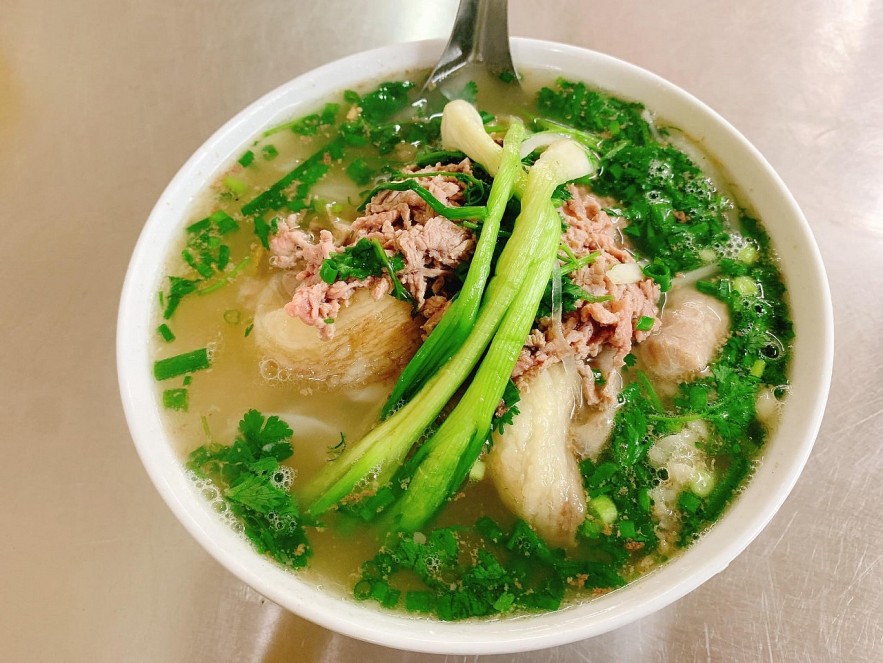 |
| Hanoi Pho is one of hundreds of traditional dishes honored. |
However, culinary culture is an art and a living heritage. Quoc recommended that state management agencies need to look at the potential in cuisine from both scientific and artistic perspectives. The state should only manage culinary culture to a certain extent, while it should entrust the community to those who carry out culinary culture, so that they can participate and implement it in practice. Only by diversifying the participant subjects will Vietnam be able to fully exploit the potential and the asset.
Diversity
Ky said that once the culinary culture can be exploited in a reasonable way, it will help attract more travelers to Vietnam and improve the competitiveness of Vietnam as a destination.
The products to be implemented under the project will contribute to creating a stepping stone to bring Vietnamese brands to the world through culinary culture, promote national competition and serve as a premise for Vietnam's economic development.
However, for many years, the culinary art, especially dishes associated with tourism, has been developing in an unorganized way. Quoc said now is the right time to realize that development needs to be implemented methodically, in accordance with a specific roadmap and standards.
Together with the 121 selected special dishes, Michelin Guide’s official release of a list of 103 restaurants in Hanoi and HCM City, including four with stars last June, has identified “Vietnam - The World's Kitchen” or “Vietnam - The Planet's Culinary Paradise” official on the global culinary and tourism map.
However, Quoc thinks that Vietnam should not consider Michelin’s rankings as a pinnacle, but simply as international standards. This makes people feel confident when approaching the new culinary culture.
“Cuisine is not measured by speed, rotation, or just physical standards. Therefore, we must focus on the differences and diversity of food products to develop sustainably and promote its values,” Quoc said.
Halal tourism – “gold mine” for Vietnam to tap into
Vietnam’s tourism sector is working hard to attract more tourists from Muslim countries (Halal tourists) which is seen as a potential market for the global tourism industry.
According to the Global Muslim Travel Index (GMTI), the Halal tourism market is quite promising, with a growing demand from the 2.1 billion Muslims worldwide, constituting about 23% of the global population.
The number of international Muslim tourists was estimated to increase from US$108 million in 2013 to US$160 million in 2019. The figure is expected to grow 80% in 2023. The spending on tourism from this market is projected to reach up to US$341.1 billion per year by 2030.
Statistics from the Vietnam National Authority of Tourism (VNAT) under the Ministry of Culture, Sports and Tourism show that the number of tourists from Muslim countries visiting Vietnam has increased remarkably in recent years, especially travelers from India (up 240% in September this year).
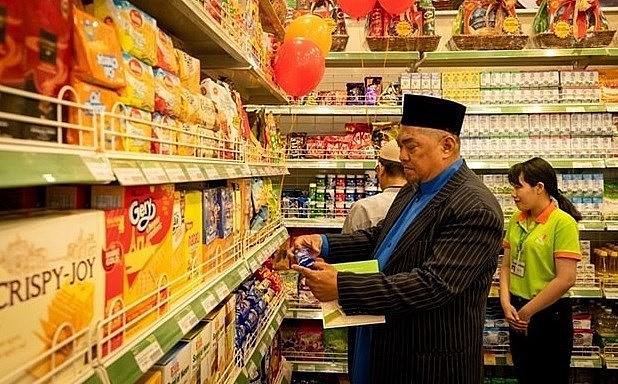 |
| To lure more travelers from the Middle East, localities need to pay attention to providing Muslim-friendly food and drinks with certification stamps. (Photo: VNA) |
Muslim tourism arrivals from Southeast Asian nations such as Singapore and Indonesia have also sharply risen.
VNAT Deputy General Director Ha Van Sieu said the Halal market offers promising opportunities for Vietnam's tourism industry and can be a "gold mine" that could provide a significant boost to the sector.
Since the beginning of 2022, many conferences to promote investment in tourism have been organised in the Middle East region and South Asia, including those on Halal tourism, which discussed solutions to lure more Muslim travelers to Vietnam.
Some localities such as Quang Ninh, Da Nang, Quang Nam and Kien Giang have planned to welcome Muslim tourists from potential markets such as India, Malaysia, and Singapore, according to VNA.
India is seen as one of the key markets for Vietnam’s tourism in the coming time, VNAT Director Nguyen Trung Khanh said, noting that Vietnam will strengthen promotion activities to lure more holiday-makers from this South Asian market.
Apart from exploring the traditional Muslim tourism markets such as Malaysia, Indonesia, Singapore, and India, businesses should focus on the Middle East region, which is known for affluent tourists who are willing to spend on high-end services, Khanh said.
To lure more travelers from the Middle East, localities should pay attention to building prayer places in public areas, restaurants, hotels, and entertainment spots; as well as providing Muslim-friendly food and drinks with certification stamps, he added.
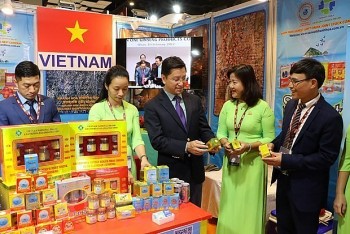 | Vietnam News Today (Oct. 13): Vietnam, India Hold Huge Potential to Expand Trade Vietnam News Today (Oct. 13): Royal Australian Navy warship HMAS Toowoomba visits HCM City; Vietnam, India hold huge potential to expand trade: Diplomat; Vietnam remains ... |
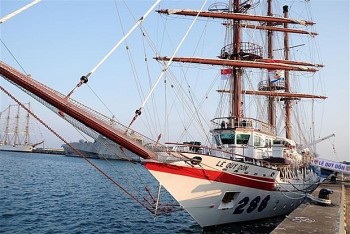 | Vietnam News Today (Oct. 14): US, Vietnam launch new activity to facilitate digital trade; Naval forces of Vietnam, Singapore enhance solidarity via friendship exchange; Ample ... |
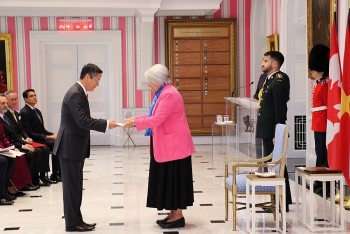 | Vietnam News Today (Oct. 15): Vietnam Desires to Strengthen Comprehensive Partnership With Canada Vietnam News Today (Oct. 15): Vietnam desires to strengthen comprehensive partnership with Canada; Vietnam eyes emerging stock market status by 2025; Flood alert raised in ... |
Recommended
 National
National
Vietnam News Today (May 29): Vietnam and Hungary to Expand Cooperation into New Areas
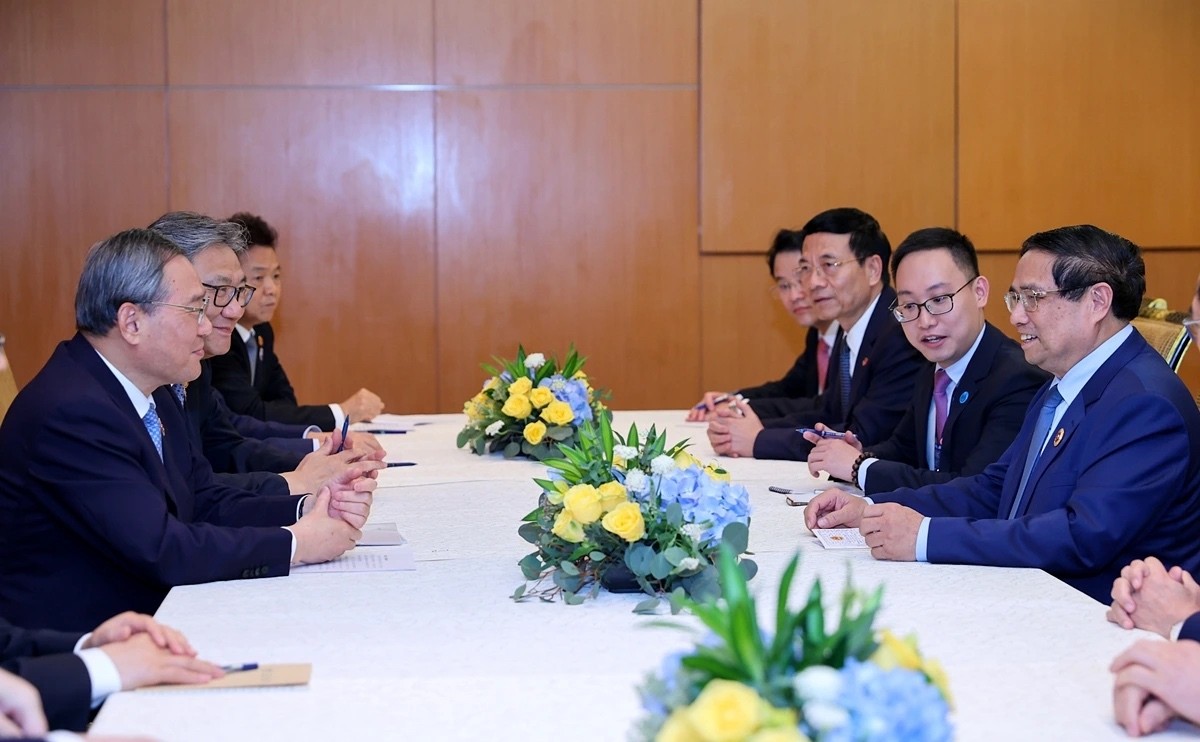 National
National
Vietnam News Today (May 28): Vietnam and China Discuss Strategic Cooperation Orientations
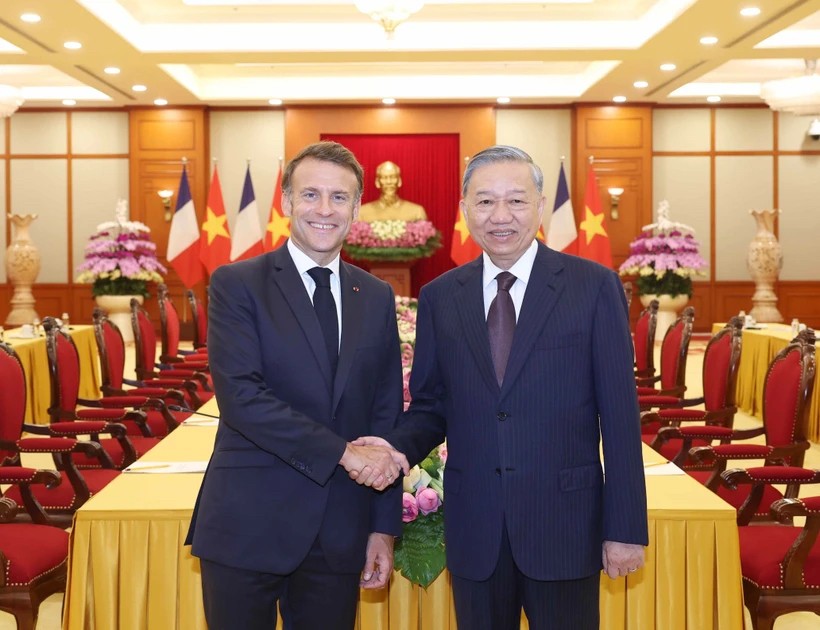 National
National
Vietnam News Today (May 27): Vietnam Treasures Multifaceted Collaboration with France
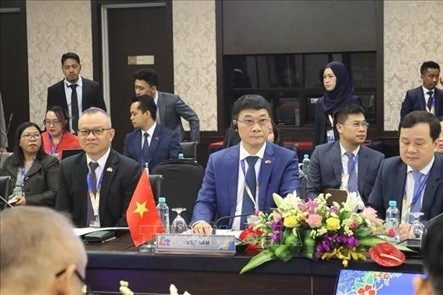 National
National
Vietnam Commits to Building an Inclusive, Sustainable and Cohesive ASEAN
 National
National
Vietnam News Today (May 31): Vietnam Strongly Supports Laos’s National Development
 National
National
Vietnam News Today (May 30): Vietnam, Venezuela Reinforce Ties Through People-to-people Diplomacy
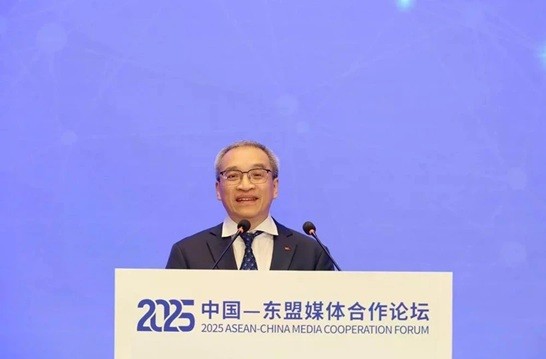 National
National
Vietnam Proposes Vision for Responsible Digital Journalism Cooperation
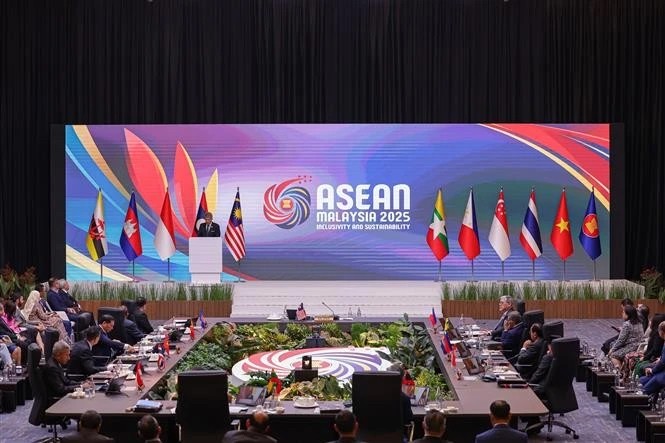 National
National

